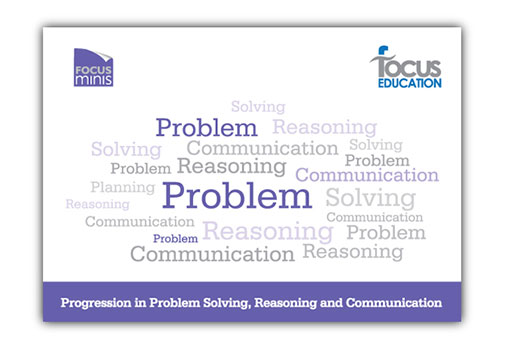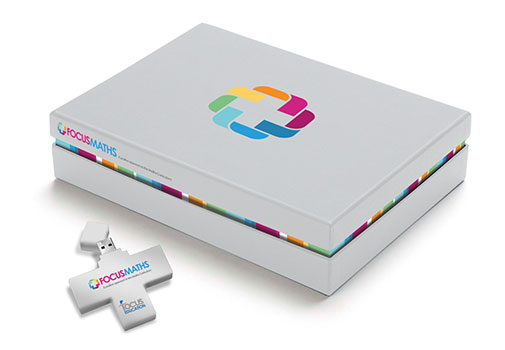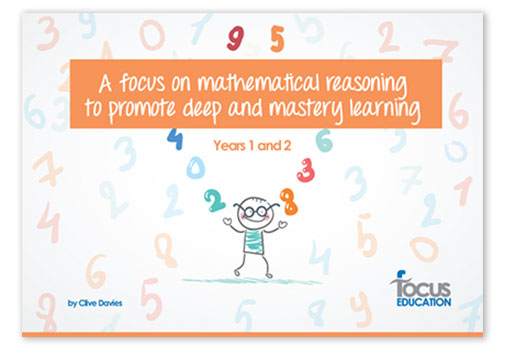
Mum is 23 years older than Henry and 3 years younger than dad. If the total ages of all three is 73, how old is mum? This type of question should now become common-place in most schools and academies at some stage and signals that there is a fundamental change happening in the teaching of maths.
The maths curriculum change
I believe that we are currently undergoing the greatest change to classroom practice since the introduction of the first ever National Curriculum in 1988. One of the most significant changes brought about through the National Curriculum is an essential change in mathematical pedagogy. That is, teachers moving away from racing learners through the sub levels to ensuring deeper understanding against each objective. In this way we should be confident that the pupils who have met the Year 6 standards will be able to cope exceptionally well with the Year 7 curriculum. These children should also be in an excellent position to springboard towards an A* to C grade at GCSE and therefore have a greater level of life choices available to them at that point. However, it is more than just getting pupils to be at the national standard at the end of Year 6, it is about getting pupils to be at the national standard at the end of each year.
The dust is beginning to settle in respect of getting our heads around what this new way of thinking entails. From the 2016 tests at both Key stage 1 and 2 the need for pupils to have deep understanding of the basic skills became very evident with pupils expected to organise their own setting out for questions like ‘17 + 72’. Ensuring that pupils have deeper levels of understanding becomes essential in each school or academy’s maths curriculum. Putting this ‘mastery stage’ at the heart of your curriculum requires an assured level of subject knowledge on behalf of each member of staff.
Mastery in maths
It is important that when we assess that a pupil is meeting an objective we also need to satisfy ourselves that they have ‘mastered’ it, that is, they work independently; are consistent; and can explain their understanding. It is very important therefore that when designing your maths curriculum consideration should be given to the underlying principles outlined in the National Curriculum for maths. As pupils become competent mathematicians they should develop the following characteristics:
- They become fluent in the fundamentals of maths. This includes varied and frequent practice with increasingly complex problems over time, so that pupils develop conceptual understanding and the ability to recall and apply knowledge rapidly and accurately.
- They should reason mathematically by following a line of enquiry, conjecturing relationships and generalisations, and developing an argument, justification or proof using mathematical language.
- They can solve problems by applying their maths to a variety of routine and non-routine problems with increasing sophistication, including breaking down problems into a series of simpler steps persevering in seeking solutions.
This links to the basic principles established by the National Centre for Excellence in the Teaching of Maths that:
- Able pupils should be challenged (and learning deepened) through more complex problem solving rather than accelerated through new material. This is a key feature of the maths curriculum, and is a large shift away from well-established practice under the previous National Curriculum.
- Teachers should be wary of giving questions and problems involving harder numbers to more able pupils – the increase in challenge should come from thinking harder about the concept or topic being taught.
Pupils really understand a mathematical concept, idea or technique if he or she can:
- describe it in his or her own words;
- represent it in a variety of ways (e.g. using concrete materials, pictures and symbols
- explain it to someone else;
- make up his or her own examples (and non-examples) of it;
- see connections between it and other facts or ideas;
- recognise it in new situations and contexts;
- make use of it in various ways, including in new situations.
Assessing mastery in maths
The bigger issue facing teachers is being able to assess whether pupils have ‘mastered’ an objective or are they coping well when that objective is being taught. I believe we need to build into our maths curriculum the important stage of checking if pupils have actually ‘got it’. This needs to be in the form of formative assessment rather than testing and can be accomplished by using well thought out activities related to the actual objective being taught. If we can do this consistently throughout the maths curriculum then teacher assessment would be far more reliable than testing.
If this was done regularly then we could possibly see an end to the worrying feature of pupils coping less well with greater depth questions because they are insecure and lack fluency with the basic skills required within the problems.
Continue the Conversation
For more information on the maths curriculum, keep an eye on the Focus Education blog, join me on twitter @Clive_FocusEd or get in touch with the Focus Education office on 01457 821 818.
I have also written Focus Maths – Whole School Maths Curriculum which supports teachers & leaders with planning to guarantee there is continuity and progression in the teaching of maths. It can be found by clicking on the image below.
Clive is a former headteacher and inspector, having inspected over 200 schools. His school gained a National Curriculum award and was featured in the Times Educational Supplement, one of three schools recognised for their quality practice.
He was awarded an OBE for his services to education in 2007.









